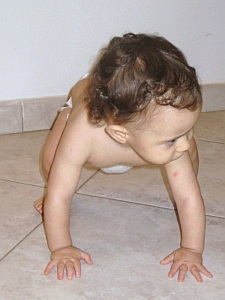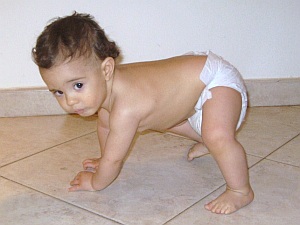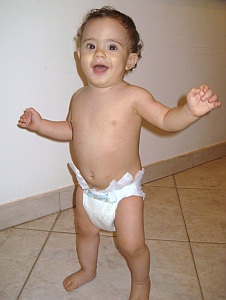 Nos enseñan desde pequeños a “hacerlo bien.” ¿Qué tal si de vez en cuando lo “hacemos mal”?
Nos enseñan desde pequeños a “hacerlo bien.” ¿Qué tal si de vez en cuando lo “hacemos mal”?
Por más incongruente que suene, muchas veces es la mejor opción. Si lo puedes hacer bien, ¡hazlo bien! Si no, es preferible “hacerlo mal.”
Todo es difícil antes de que sea fácil. El valor de realizar una actividad no siempre viene en hacerla bien. Pensemos por un momento en cualquier actividad que hagamos bien. Puede ser nuestro trabajo, un deporte o un juego. Lo más seguro es que antes de “hacerlo bien” primero tuvimos que “haberlo hecho mal.”
 En frente de un nuevo desafío, las dudas, las incertidumbres y los miedos están a millón.
En frente de un nuevo desafío, las dudas, las incertidumbres y los miedos están a millón.
¿Cómo lo hago?
¿Qué tal si no lo hago bien?
¿Qué tal si me hago el ridículo en el intento?
Éstos y otros pensamientos impregnan nuestra mente. Hay solamente dos alternativas. Levantarnos y tomar acción o quedarnos paralizados sin hacer nada.
No siempre es prudente realizar todo lo que se nos viene por la mente, porque también esto puede ser peligroso. Aun así, cuando se trata de una actividad que podría darnos un impulso importante hacia nuestros objetivos, ¡es preferible tomar acción y hacerlo mal, a no hacer nada!
 Tomemos el ejemplo de un bebé que está comenzando a caminar. Lo hacen mal al principio. No esperamos que el bebé comience a caminar perfectamente bien antes de caerse varias veces. Como suele ser el caso, lo más importante no es caerse sino levantarse nuevamente porque ¡el rebote nos lleva al tope en muchas áreas de la vida!
Tomemos el ejemplo de un bebé que está comenzando a caminar. Lo hacen mal al principio. No esperamos que el bebé comience a caminar perfectamente bien antes de caerse varias veces. Como suele ser el caso, lo más importante no es caerse sino levantarse nuevamente porque ¡el rebote nos lleva al tope en muchas áreas de la vida!
En todo lo que emprendemos hay una curva de aprendizaje. Es posible aplanar esta curva familiarizándonos con lo que queremos lograr, aprendiendo de los errores de los que ya han logrado hacerlo bien para alcanzar lo que más deseamos. Podemos utilizar esta información para optimizar nuestros esfuerzos. Sin embargo, normalmente hacemos las cosas “mal” antes de hacerlas “bien.”
Hay muchos factores que influyen sobre nuestro deseo de iniciar una actividad. Las dudas sobre nuestra capacidad de hacerla bien, las incertidumbres sobre la forma correcta de realizarla y los miedos de lo que puedan decir los demás. Si bien estas emociones son parte de nuestra realidad y eventualmente nos pueden ayudar a sobrevivir un peligro, nos inhiben al momento de estirar un poco más allá de nuestro alcance.
“La intención de un hombre debería exceder a su alcance, ¿si no para qué existe el cielo… El objetivo, bien sea alcanzado o no, ¡hace grande la vida!”
~ Robert Browing ~
Cuando llegamos al final de este viaje maravilloso que llamamos vida, lo más triste es caer en una serie de preguntas que comiencen con la frase:
“¿Qué tal si hubiese…?”
Al tomar acción y hacer las cosas “mal” cuando no las podemos hacer “bien,” aprendemos de nuestros errores y mejoramos hasta hacerlas “bien.” Así que la próxima vez que te enfrentes con la decisión de hacer algo mal o no hacerlo, hazlo mal.
∞ Rob McBride ∞
LL II 23

